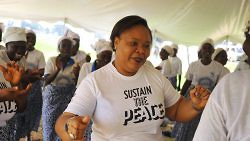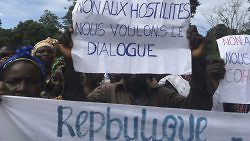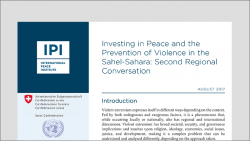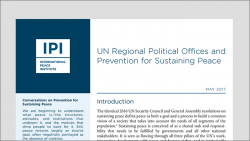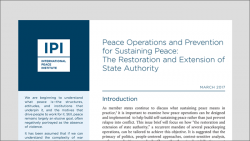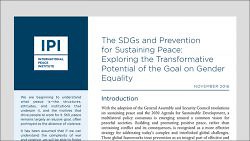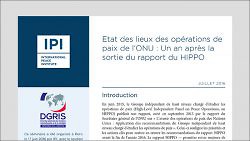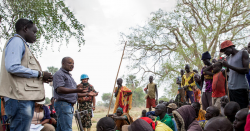
Track-1 mediation processes have increasingly struggled to deliver comprehensive peace agreements that address fragmented conflict dynamics and include local communities’ needs. As a result, local mediation has increasingly been a focus for the UN, including for UN peace operations. UN peace operations can play an important role in supporting local mediation initiatives, whether these initiatives […]
Read more
